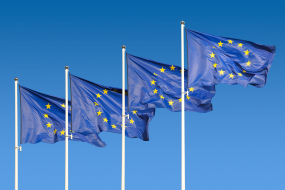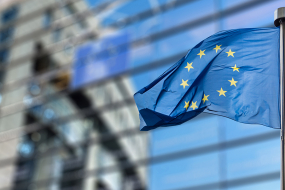Parliamentary vote on the Digital Markets Act (DMA)
Berlin, 15th December 2021 - The European Parliament will vote on the Digital Markets Act on Wednesday. Bitkom’s Chief Executive Dr. Bernhard Rohleder explains:
“While the Digital Markets Act has the potential to set the right impulses for fair competition in the EU, the current compromise proposal of the European Parliament has far-reaching negative consequences for European platforms and startups. The proposal as it stands weakens IT security and data protection. Platforms are essential components of the digital economy and, thus, a key enabler for growth and jobs in Germany and Europe. Against this backdrop, it is important to aim for smart regulation that clearly defines the scope and obligations for a gatekeeper without causing unnecessary collateral damage to other companies.
At the same time, the DMA misses the opportunity to create a constructive framework to regulate competition as it is merely focused on sanctions instead of targeted facilitation. In Bitkom’s view, incentives for innovation and cooperation should urgently be increased to foster newly emerging platforms and digital companies.
The European Parliament called for the interoperability of messenger services, which would enable sending messages between different messengers. However, this does not consider that messenger services are not comparable to emails or SMS, as they offer significantly more functions, which still need to be standardized. In addition to immense technical barriers, there are also data protection concerns, as the usage data and metadata of the users of one messenger service would then have to be passed on to other services. Moreover, customers often choose specific messenger services because they offer special functions or data protection and security settings. Functions and security levels would inevitably always be aligned with the service that offers the weakest performance when it comes to an exchange between two users or in group chats with several messengers. In a chain of interconnected services, the service with the lowest range of functions and the lowest level of security and protection would determine the respective communication in the future. This cannot be in the interests of consumers.
The Digital Markets Act is one of the most important digital policy initiatives in Europe. In the upcoming trilogue negotiations, the European Parliament, the European Commission, and the Council must therefore remember the original objective of the DMA: to create fair competitive conditions in Europe.
This requires clear rules on the scope of the DMA, which would also avoid lengthy legal disputes intending to clarify the scope. In addition, timely guidance on the interpretation and implementation of the DMA is needed as well as a functioning dialogue process for gatekeepers, for companies active in the digital ecosystem, and for emerging European providers. A well-conceived DMA should enable innovation in an economy while ensuring fair competition and addressing potentially undesirable side effects of regulation."








